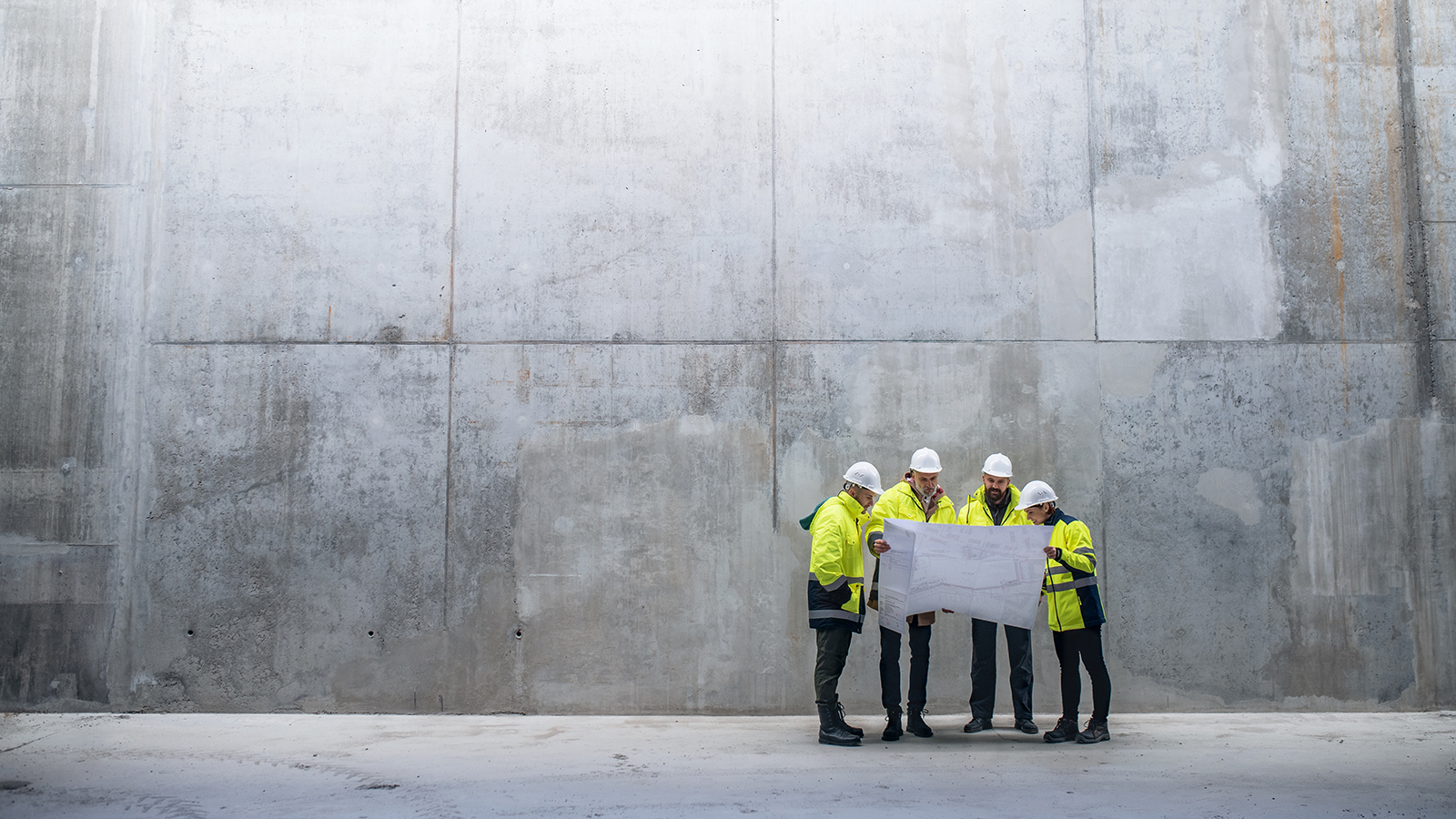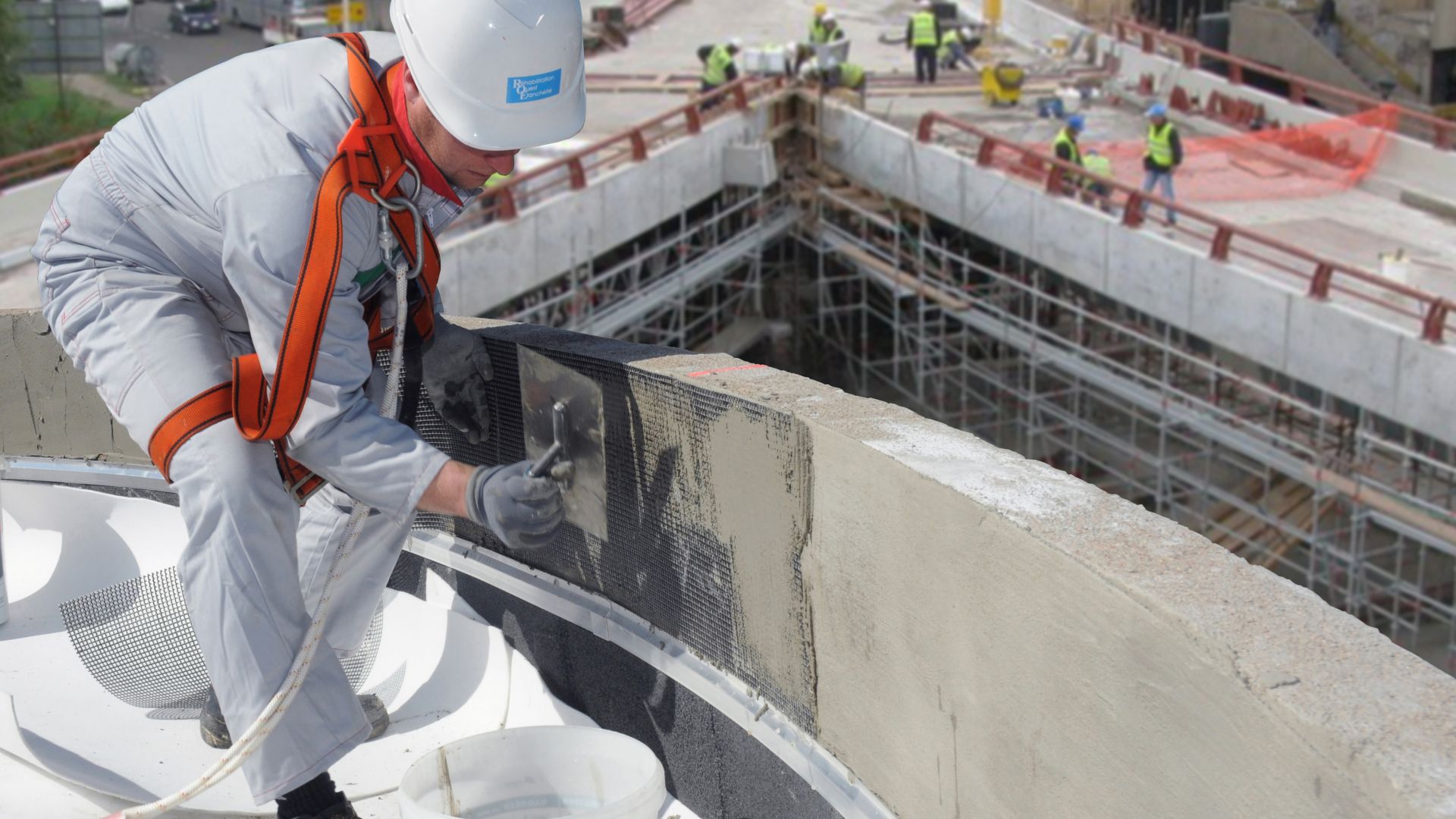How to Improve Your Project’s Lifespan with West Coast General Engineering industrial concrete
How to Improve Your Project’s Lifespan with West Coast General Engineering industrial concrete
Blog Article
The Essential Role of Concrete Foundation in Structural Stability and Longevity
When it pertains to building a home, the foundation is more vital than you may believe. Concrete foundations provide unmatched strength and sturdiness, ensuring your framework can hold up against different ecological challenges. Without a solid base, you run the risk of possible issues like shifting or breaking, which can compromise safety and security and worth. Understanding the nuances of concrete foundations could be the secret to protecting your financial investment for several years to find. So, what should you think about following?
Recognizing the Importance of Concrete Foundations
Concrete structures are crucial to the overall stability of any kind of structure, as they provide the necessary support required to hold up against numerous tons and ecological problems. When you believe regarding constructing a home or a commercial space, the structure is the first thing you need to take into consideration. It functions as an obstacle versus dampness, protecting your property from water damage. A well-placed concrete structure also avoids settling and changing, which can cause cracks in wall surfaces and floors. You'll want to guarantee that the foundation is effectively developed and enhanced, as this influences the durability of your building. Additionally, a solid foundation can boost power efficiency by minimizing air leakages. Remember, overlooking the importance of a concrete foundation can bring about expensive repair work down the line. Spending in a top quality structure upfront is essential for the stability and longevity of your framework.
Benefits of Concrete Foundations for Architectural Honesty
While lots of factors add to a structure's structural honesty, concrete foundations use unparalleled sturdiness and stamina. You'll appreciate that concrete can stand up to extreme weather problems, standing up to both wetness and temperature changes. This strength means your framework is much less most likely to experience cracking or shifting gradually, which can endanger its safety.Additionally, concrete's fundamental weight offers a solid base, protecting against movement during natural occasions like quakes or floods. When you choose a concrete structure, you're likewise going with reduced maintenance; unlike wood, it will not rot or attract parasites, saving you money and time in repairs.Moreover, concrete's fire resistance provides added security, ensuring your structure can endure heats without substantial damage. Overall, purchasing a concrete foundation implies you're focusing on the lasting stability and honesty of your building, making it a sensible option for any type of construction project.
Usual Types of Concrete Foundations
When it involves constructing structures, understanding the usual kinds of concrete foundations can help you make educated selections for your task. One of the most prevalent types include slab-on-grade, crawl room, and complete cellar foundations.A slab-on-grade structure is a straightforward, cost-efficient alternative, where a thick concrete slab is put straight on the ground. This kind works well in cozy environments, as it reduces heat loss.Crawl area foundations elevate the home a little over ground, enabling ventilation and accessibility to plumbing and electrical systems. This layout can assist protect against dampness issues.Full cellar structures offer additional living or storage area while offering superb structural assistance. They call for even more excavation and are typically used in colder climates to avoid frost heave.
Elements to Think About When Creating a Concrete Foundation

Finest Practices for Installing Concrete Foundations
When you're setting up a concrete foundation, proper site prep work is important to guarantee stability (West Coast General Engineering industrial concrete). You'll likewise require to recognize reinforcement methods to improve toughness and toughness. Don't neglect the curing procedure, as it plays a basic role in accomplishing a strong structure.
Website Preparation Relevance
It may seem straightforward, proper website preparation is important for guaranteeing a solid and durable concrete foundation. Begin by getting rid of the area of any kind of debris, greenery, or natural product that can compromise the structure's honesty. Next, assess the soil type and compaction; you could need to excavate or add products to create a secure base. Level the ground to guarantee also weight distribution and avoid settling issues later on. Setting up proper drainage systems is additionally necessary to stop water accumulation, which can damage the foundation in time. Lastly, define the foundation's dimensions properly to lead the putting procedure. By adhering to these steps, you'll set the stage for an effective concrete foundation that stands the test of time.
Support Strategies Discussed
Once the website is properly prepared, the following step in ensuring a strong concrete foundation includes executing reliable reinforcement techniques. You must begin by utilizing steel rebar, which offers tensile strength and aids protect against splitting. Lay the rebar in a grid pattern, making certain it rises using spacers to preserve proper protection. Furthermore, consider making use of wire mesh for extra assistance, specifically in areas subject to hefty loads. Do not forget to link the rebar crossways firmly with cord. For bigger structures, fiber reinforcement can boost resilience, decreasing the danger of contraction splits. Constantly comply with neighborhood building codes and standards to ensure compliance. By using these reinforcement methods, you'll substantially boost your foundation's strength and long life, laying a strong foundation for your structure.
Treating Process Fundamentals
To assure your concrete foundation remedies effectively, it's important to maintain appropriate dampness and temperature conditions quickly after putting. Beginning by covering the surface with a damp cloth or plastic bed linen to preserve moisture. This maintains the concrete hydrated, avoiding cracks and guaranteeing stamina. You must additionally keep an eye on the temperature level; perfect treating conditions are in between 50 ° F and 90 ° F. If it's too warm, mist the surface frequently to stop fast evaporation. For cool weather, think about making use of protecting coverings to keep warmth. Aim for a healing duration of a minimum of seven days, as this is essential for optimal strength growth. By following these finest techniques, you'll improve your foundation's durability and durability, making sure architectural honesty for several years to come.
Upkeep of Concrete Foundations for Long Life
To maintain your concrete foundation strong and long-term, regular examinations are important. You need to also assure reliable drain services remain in area to protect against water damages. If you identify any type of splits, resolving them quickly will save you from larger precast concrete slabs problems down the line.

Normal Evaluations and Assessments
While routine assessments and analyses might feel like a chore, they're vital for keeping the stability of your concrete foundation. By routinely examining for fractures, shifts, or signs of wear, you can capture possible problems before they escalate into expensive repair services. Seek any kind of water merging around the structure or unusual settling, as these can signal underlying problems. It's additionally smart to keep track of any modifications in your home's structure, like doors that stick or home windows that do not open efficiently. Keeping a record of your inspections aids track modifications over time, permitting positive upkeep. Ultimately, these evaluations ensure your foundation remains steady, sustaining the durability and safety and security of your entire structure. Do not overlook this vital facet of homeownership!
Efficient Drainage Solutions
Routine evaluations can reveal problems like drainage issues that may jeopardize your concrete structure's security. To stop water buildup, guarantee your seamless gutters and downspouts direct water far from the structure. Installing French drains can successfully redirect surface area and groundwater, reducing pressure on your foundation wall surfaces. Additionally, rating the soil around your home assists assure that water streams away, instead of pooling near your foundation.Consider using sump pumps in locations prone to flooding, as they proactively get rid of excess water. Regularly look for obstructions in drainage systems and clear them promptly. You'll safeguard your foundation's integrity and long life by taking these aggressive measures. Keep in mind, effective drainage solutions are essential for keeping a strong, durable concrete structure.
Motivate Fracture Services
When you observe splits in your concrete structure, resolving them without delay is important for preserving its longevity. Tiny splits can promptly evolve right into bigger concerns, jeopardizing the architectural honesty of your home. Consistently examine your foundation for indications of damages, such as horizontal or vertical splits. If you identify any kind of, do not wait-- repair them right away. You can make use of epoxy shots or concrete patching compounds, which work for sealing fractures. Constantly comply with the supplier's guidelines and consider speaking with a specialist for substantial damage. Keep in mind, timely repairs not just improve your structure's toughness but likewise save you money over time by preventing a lot more considerable repair services down the line. Keep proactive, and your structure will certainly remain strong and safe and secure.
Resolving Typical Problems With Concrete Foundations
Concrete structures can face numerous concerns over time, making it critical to identify and resolve them without delay. One of the most common troubles is splitting, which can happen because of temperature level changes or working out dirt. If you notice cracks, it's vital to assess their size and deepness; tiny cracks can typically be secured, while larger ones may require professional evaluation.Water invasion is another significant concern. Excess dampness can bring about mold and mildew growth and structural degeneration. Warranty correct drainage around your structure to mitigate this threat. Furthermore, look for indications of shifting or bowing walls, as this can suggest underlying issues with your structure's stability.Regular evaluations are essential to catch these troubles early. If you detect any type of concerning indicators, don't wait to consult a structure expert. By remaining proactive, you can preserve the integrity and longevity of your concrete structure, guaranteeing your home remains secure and protected.
Often Asked Concerns
Just How Does Soil Type Affect Concrete Foundation Performance?
Soil kind substantially influences concrete foundation performance. If you've got large clay, stamped concrete indoors for instance, it can create shifting and splitting. Sandy dirt may cause working out. Comprehending your soil assists ensure a stable foundation.
Can Concrete Foundations Be Repaired if Damaged?
Yes, you can fix broken concrete foundations. Depending on the level of the damage, strategies like epoxy shot or piece jacking can bring back stability. It's best to seek advice from an expert for efficient services.
What Is the Common Life-span of a Concrete Structure?
A special info concrete foundation normally lasts 30 to 100 years, relying on factors like dirt problems, climate, and upkeep. You'll desire to keep an eye on it to ensure it remains healthy throughout its life expectancy.
Are There Option Materials to Concrete for Foundations?
Yes, there are options to concrete for foundations, like steel, lumber, or perhaps recycled materials. Each choice has one-of-a-kind advantages and downsides, so you must consider your job's specific demands when selecting the right material.
Exactly How Does Climate Impact Concrete Foundation Durability?
Climate significantly affects concrete foundation durability (West Coast General Engineering Concrete). Severe temperatures, wetness, and freeze-thaw cycles can weaken the product, resulting in fractures and architectural issues. You need to consider regional climate conditions when planning your structure to ensure long-lasting efficiency
Report this page